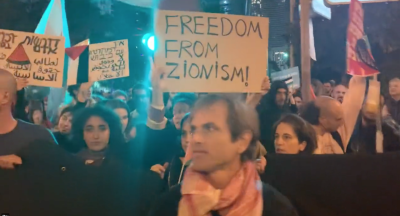
Israel: protests mount against far-right government

Anti-government protests have been mounting in Israel each week since the new far-right administration led by Benjamin Netanyahu government took power at year’s end. The night of Jan. 21 saw over 100,000 march in Tel Aviv, while thousands more took to the streets in Jerusalem, Haifa and other cities. The protests have won support from pillars of Israel’s traditional political establishment as well as the left opposition. The formerly ruling Blue & White coalition of ex-defense minister and Netanyahu rival Benny Gantz declared on its official Twitter account: “We will continue to take to the streets and demonstrate in favor of democracy and against the coup d’état.”
Especially at issue is the new government’s planned sweeping judicial reform, under which an “override clause” would allow a simple majority of Knesset votes to supersede a Supreme Court ruling. This reform would mean that no opposition members would be required to override rulings—effectively gutting Israel’s checks-and-balances system.
Netanyahu did fire Aryeh Deri from his post as interior minister Jan. 22, complying with a Supreme Court decision ordering him to do so. The high court ruled four days earlier that Deri, leader of the Shas religious party, was not eligible to serve due to his “backlog of convictions,” including having served 22 months in prison on charges of fraud, bribery, and breach of trust in 1999. (Jurist, AA)
While Israeli flags and slogans such as “Israel, we have a problem” have predominated at the protests, some demonstrators have raised the Palestinian flag in deliberate defiance of an order from new National Security Minister Itamar Ben-Gvir to remove all Palestine flags from public places. The demonstrations have included an “anti-apartheid bloc” calling for a secular state and decolonization of Palestinian lands. (CNN, Jurist, Activestills)
Photo via Twitter
